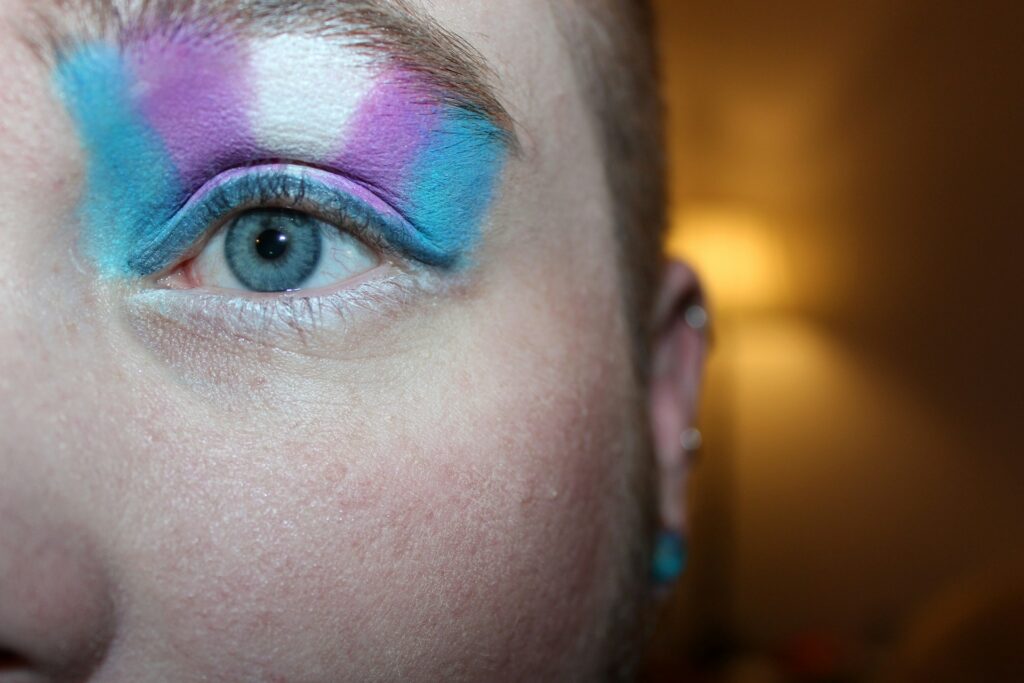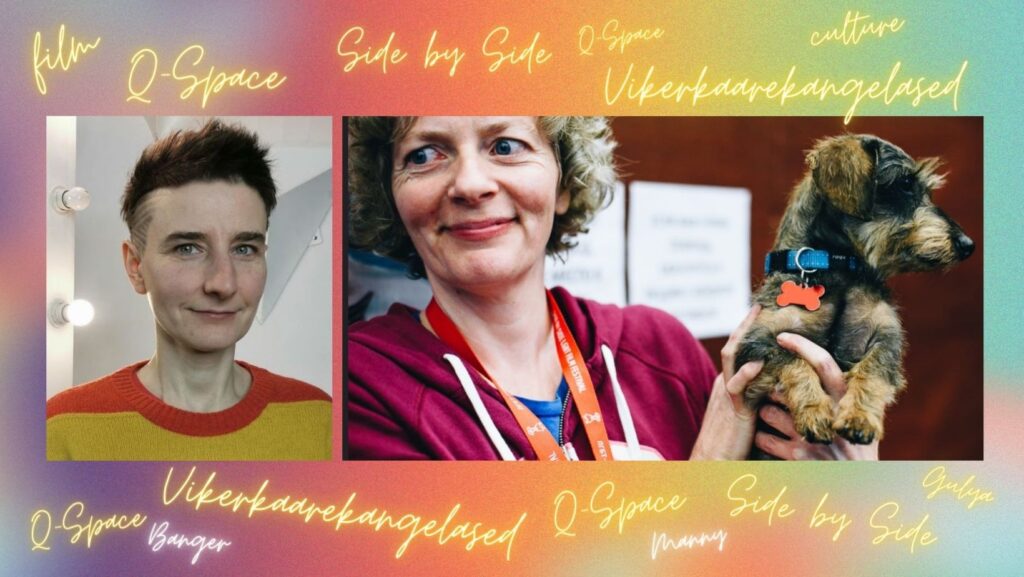What is a feminist space? Ülase12 social centre and its politics of care
“Why do you describe Ülase12 as a feminist space?” I’ve always been unable to produce a quick and convincing answer to this question —although I deem it to be self-explanatory— so I thought it may be easier if I write about it. As I see it, a feminist space is a place where people do not compete; they collaborate horizontally, without a hierarchy, a president or people telling each other what to do. They care for each other and foster their own ideals of inclusion and well-being. It is a space where the “future ideal society” is already —and constantly— being built and experienced.
Ülase12 is a feminist space because we choose to care for each other. Accepting our vulnerabilities, we build together something that takes everyone’s needs, capabilities and limitations into account, and we work collectively to overcome obstacles. For those who do not know, Ülase12 is a self-organized, non-hierarchal anti-capitalist social centre that resists patriarchy and sexism, and where different ideas on issues that matter to us are exchanged, such as migration, mental health, and gender. Ülase is not about being stronger and more successful than others, it is about getting by with few resources, it is about existing.
Bilingual water shut off
On a day like any other, there was no running water at Ülase and we went and checked with a neighbour about the problem. Eke, a fellow activist asked the neighbour if they knew what was going on. Eke asked in Estonian. The neighbour replied that the supply had been shut off for all day. They replied in Estonian, with an obvious Russian accent. Eke inquired a bit more, this time in non-native Russian. To which the neighbour replied in native Russian. They finally bid farewell in a mix of both languages.
I remember this event so distinctively because it was remarkable: I had never witnessed such a collaborative bilingual exchange in Estonia before. Neither got upset by the other’s grammar mistakes or “heavy” accent. Neither praised the other for their language abilities or acted surprised as if having someone from the other ethnic group —how euphemistic is to call 30% of the population a “minority”— speak your mother tongue was either an anomaly or an obligation.
Collaborating for a common goal —leaving aside wounded nationalistic egos, feelings of righteousness or pervasive and malicious stereotypes— is characteristic of the Ülase community. Accessibility (linguistic and other kinds) is very important. Because of the multicultural background of the community, English is the main working language, but subtitles and translations are offered whenever necessary or possible. There is room for improvement, of course, like making the space accessible for wheelchair users. We offer to fix that with “feminist human power” which is of course not the ideal solution, but it means that we are aware, that we care and that we’ll do as much as we can to surmount the limitations and include others.

Collaborating for a common goal —leaving aside wounded nationalistic egos, feelings of righteousness or pervasive and malicious stereotypes— is characteristic of the Ülase community. Photo: Anton Porsche. Unsplash
Difference thrives in safe spaces
Another event. The room is quite silent and the voice of the speaker can be heard clearly in the only room of the social centre. A tinkling noise resonates; rhythmic, constant. No one complains, not even the speaker. I pay attention and I notice it is the speaker who is playing with a metal bracelet, pacing up and down the room, bare arms covered with scars, talking about mental health. They’re not a doctor. They are a survivor, an activist, one of us.
If you pay attention more closely, you can notice some people sitting on the floor, others are barefoot, someone rocks themselves back and forth in a chair, someone else is eating a snack, another one is taking a nap. Everyone pays as much attention as they can or want, the atmosphere is respectful, but the room for difference, non-normativity and neuroatypicity is very open. The speaker is obviously an expert, yet their expertise is not certified by any institution, but by their life experiences. Their views and opinions are entirely subjective —as is anyone else’s— and they don’t speak from a position of power but as a friend.
In mental health and trans events, we pay attention to representation issues, having people speak for themselves. We purposefully sit and discuss our rules for creating a safe space. But it is something that is constantly happening at any and every event at Ülase. For example, not all opinions are respected there, and one will be called out and eventually asked to leave if necessary if they are disrespectful towards others. We take care of each other and fight harassment and any type of violence that we witness. We do it together and we reproduce and support the types of behaviour that we would like to see reflected in the broad society.

We know we are vulnerable, but that’s our strength. Photo: Himanshu Singh Gurjar. Unsplash
Wash your own dishes
An event about disability and sexuality has just finished. People look tired and satisfied. We get up and start tidying up. Some people wash the dishes, others sweep the floor; we take the chairs downstairs and we pack and distribute the vegan food that is left. Because we are ten people, we finish very quickly, we close the place and go home.
However rare such an image may be in a social centre or in a club, it is most common at a friend’s party or at home with one’s family. Ülase12 is a self-organized space, which means that we are all part of what is happening. By collaborating in different ways, the responsibility and work are distributed and easier to take on. There is no entrance fee for events like conferences and movie nights, but donations are welcomed. This allows each of us to decide how much we can contribute depending on our possibilities. But people can also collaborate by organizing events, or clean the place, or cook, or in any way they can. This combination of autonomy and collaboration makes Ülase accessible and welcoming for people with different financial and time capabilities. People are too different from each other for there to be required certain standard requirements in order to join a community. People are generous in different ways when they care.
Why laws are not the solution
Ülase12 is definitely a feminist space but maybe it is harder to identify it as such because the feminist ideals we fight for are much broader in scope than other types of feminism.
If one day the pay gap between men and women finally decreases, will the pay gap between Russian and Estonian speakers also magically vanish? And what about the pay gap between trans and cisgender people? Will poverty be substantially reduced or the minimum wage for all be increased?
If the civil partnership act is finally implemented, will non-citizens be able to reunite with their families? Will the recognition of non-monogamous families improve? Will making a family become easier for those who lack financial resources, a support network, marketable skills?
If a fully comprehensive anti-discrimination law is ever passed, will that stop harassment on the streets, in the schools, within families? Will we truly acquire equal access to education, to health, to employment?
Ülase12 is committed to building safe feminist spaces for sharing, but we do that from the bottom, through self-organization, sharing resources and educating each other. We know we are vulnerable, but that’s our strength. By not struggling to succeed, but to survive, we are more flexible and capable of adapting and of providing for our very varied and ever-changing needs.
Some of you may still not be convinced that “feminist” is the best term to describe a place like this, where politics of care are implemented at all times. It doesn’t really matter, it is after all just a label. But it is for sure a place I want to belong to.
*Amaranta/Torian is an active member in Ülase12, but the views expressed in this article are personal.











